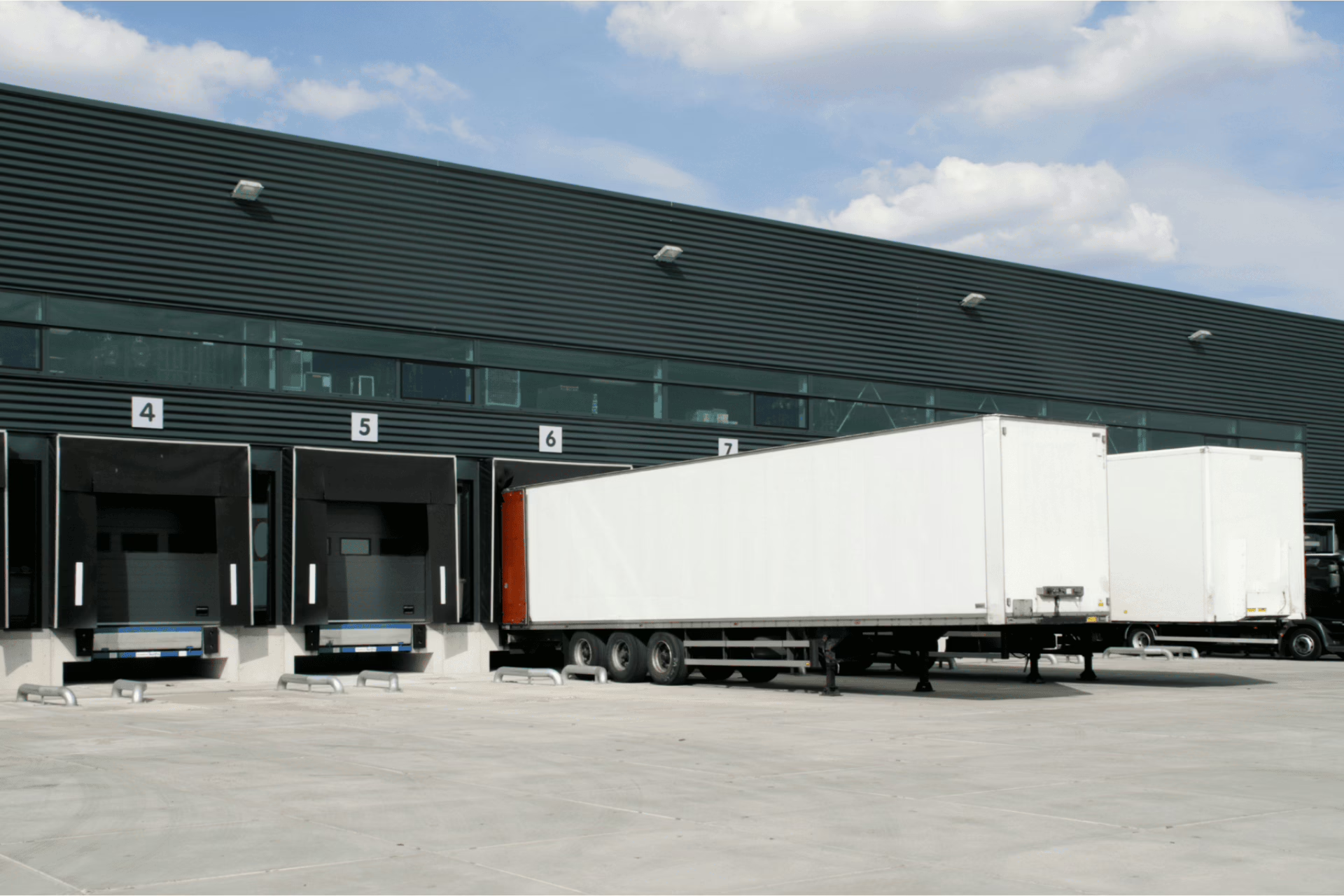Insourcing vs. Outsourcing
Ensuring distribution yard management operations remain competitive

Operational inefficiencies are common in distribution yards, yet they should not be accepted as unavoidable business costs. The dollars and minutes spent on these inefficiencies are too high to ignore. Fortunately, shippers and brokers have multiple options to address these issues, including insourcing or outsourcing yard operations.
This paper explores the advantages and disadvantages of both approaches, examines industry data, and highlights the critical role of technology and sustainability in improving yard performance.
Understanding the Landscape
Stakeholder Composition
The U.S. distribution yard management sector consists of several stakeholders, primarily brokers and third-party logistics (3PL) providers, with a significant portion being shippers and manufacturers. Recent industry data reveals that:
- A majority – 50% – identify as brokers or 3PL providers.
- Shippers and manufacturers collectively account for 45% of respondents.
This split provides valuable insights into operational priorities, challenges, and actionable strategies tailored to different business models.
Industry Sectors
The types of goods shipped or brokered by these stakeholders span various industries, including:
- Manufacturing/Industrial
- Food and Beverage
- Retail
These sectors face unique challenges but share a common need for optimized yard management to ensure timely deliveries and cost efficiency.
Insourcing Yard Management
The Appeal of Insourcing
Many companies choose to manage yard operations entirely in-house, citing benefits such as:
- Greater direct control over operations.
- A closer alignment with corporate goals.
- Retention of proprietary processes and knowledge.
Challenges of Insourcing
Despite these perceived advantages, insourced yard operations often struggle with:
Limited Visibility: A Yard Management System (YMS) can improve visibility into yard efficiencies, leading to bottlenecks and unplanned delays. Insourced customers can use YMS through a 3PL YMS provider or develop an in-house system.
High Operational Costs: Managing in-house drivers, maintenance, and technology investments can strain resources.
Missed Opportunities for Optimization: Insourced operations are frequently reactive rather than proactive, and they need more scalability and the expertise of specialized providers. It is much more complex and costly to staff up for things like peak events/seasons with insourced models as they are, most likely, paying temp driver rates or using contract drivers. 3PLs can use drivers from their existing pool (ex RRT, cross-trained drivers, etc.)
Risk: Solely responsible for damages, claims, OSHA recordables, and DOT compliance.
Outsourcing Yard Management
Advantages of Outsourcing
By partnering with experienced 3PL providers, companies can achieve:
Enhanced Operational Efficiency: Dedicated experts use proven processes and technology to optimize yard throughput.
Cost Savings: Reduced overhead and streamlined workflows lower overall operational costs.
Improved Visibility: Integration with advanced YMS tools provides real-time insights into yard operations.
3PL: takes on most of the risk of damages, claims, OSHA Recordables, and DOT Compliance.
The Role of Technology
Outsourcing providers often leverage state-of-the-art technologies such as:
Yard Management Systems (YMS): Automates task allocation, tracks trailer movements, and provides actionable data. Additional roles can include faster yard checks, better yard health and more accurate trailer location tracking, trailer utilization reporting.
Electric Vehicles (EVs): Supports sustainability goals and reduces fuel costs. It can also create net year-over-year savings vs. diesel and help meet state/local/leaseholder requirements.
Sustainability and Cost Savings
A growing focus on sustainability is reshaping yard operations. Companies adopting technologies like YMS and EVs experience significant benefits, including:
Reduced Carbon Footprint: Electric yard trucks and optimized routing lower emissions, reduce diesel gallon savings, and reduce/eliminate the chance of spills on the yard during PMs, including fluid replacements.
Enhanced Operational Efficiency: Real-time visibility into yard performance enables faster turnaround times; also, better up-time compared to diesel and increased driver retention
Cost Reduction: Reduced reliance on fossil fuels and lower maintenance costs translate into long-term savings. Grants and subsidies can help lower the CapEx costs as well.
Conclusion
Outsourcing yard operations to a single-service provider like Lazer Logistics delivers measurable efficiency, cost, and sustainability benefits. Lazer specializes in yard logistics solutions that optimize throughput at transition points across the connected supply chain. Their expertise in leveraging technology, integrating sustainability initiatives, and offering end-to-end service makes them an ideal partner for companies seeking to transform their yard operations. Lazer also takes on all risks and provides a multi-level approach to coverage for vacancies, sick/vacation days, call-offs, and peak/surge events.
Shippers and brokers gain access to industry-leading tools and insights by choosing Lazer Logistics, ensuring their operations remain agile and competitive in today’s fast-paced logistics landscape.
Sources
- “Trends in Third-Party Logistics,” Council of Supply Chain Management Professionals (CSCMP).
- “Yard Management Systems Market Analysis,” Logistics Management Journal, 2024.
- “The Environmental Impact of Electric Vehicles in Logistics,” Clean Energy Association, 2023.
- Lazer Logistics Internal Reports, 2022-23.
- “Operational Inefficiencies in Distribution Yards: A Statistical Review,” Supply Chain Review, 2023.
CONTACT US
Ready to learn more about how you can leverage our solutions to increase your throughput? Fill out this form, and a member of our team will contact you.
